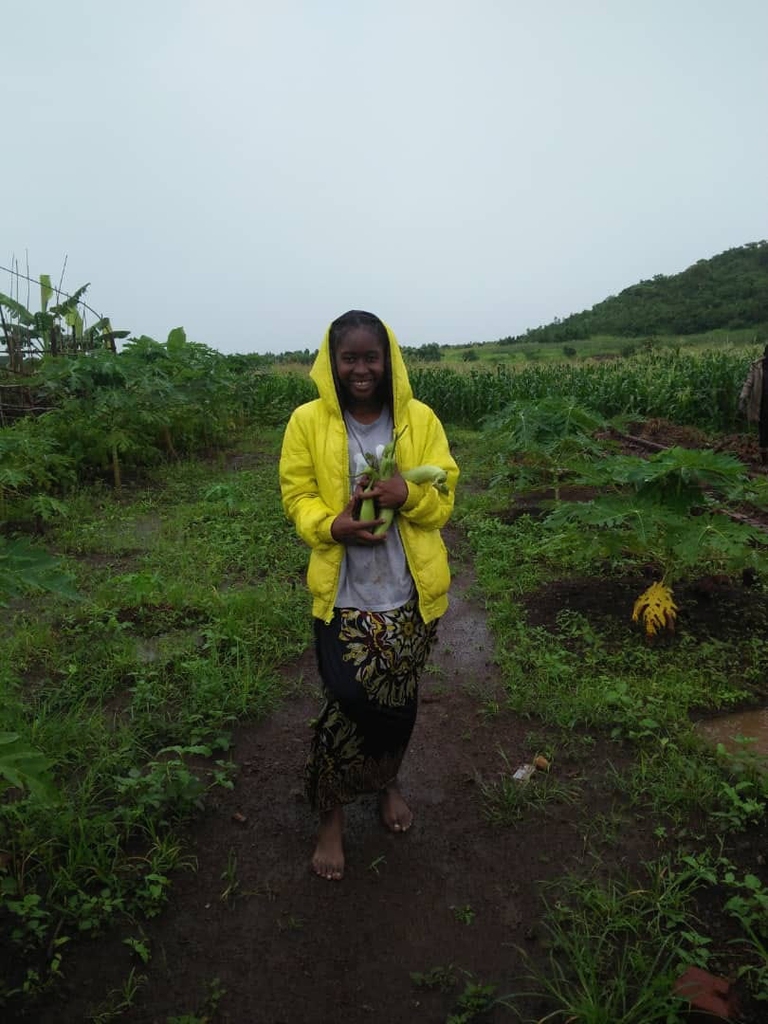
The United Kingdom have voted to support Hunting trophies bill, a controversial bill that aims at prohibits importing hunting trophies from thousands of endangered animal body parts of lions, elephant and giraffe’s into the U.K.
A fierce tropical storm has killed hundreds in Malawi, Mozambique and Madagascar and is set to break the record as the longest-lasting cyclone ever.
Tropical Cyclone Freddy, which developed over Australia’s Indian Ocean coast region in early February, travelled a record distance of more than 8,000km (4,970 miles) to make landfall in Madagascar and Mozambique in late February. Now, Freddy has hit Southern Africa for a second time. The death toll in southeast Africa due to the longest-lasting tropical cyclone ever recorded has risen to 525, according to local authorities in Malawi, Mozambique and Madagascar. More than 1,000 people have been injured, 85 are missing and 95,000 have been displaced.
Malawian President Lazarus Chakwera has declared 14 days of mourning and pledged $1.5 million in assistance. He has also called for more aid, stating that his country’s capacity to provide relief is limited. “What is happening to us can happen to anyone, anywhere. Let the world come in and help Malawi because we cannot afford to be going backwards instead of forward in terms of all the provisions that Malawians need.
“Climate change is real, and what we are having to see is devastation: thirteen months, three devastating cyclones. We are trying to do the best we can to help our people. The impact caused by the Cyclone reveals the magnitude of physical & emotional pain caused. We will not relent but support everyone affected. Efforts also intensified to account for those still missing,” Chakwera stressed.
Gibo Pearson, a Malawian music producer and artist based in Bokosi village in the Phalombe districts, told LifeGate how he survived the devastating floods by climbing a mango tree with 14 other villagers in the middle of the night.
“I was deep asleep, but around 04:00, I felt like my body was floating. I heard voices shouting my name from outside, it was at this point I realised my mattress was floating in water that had filled up the house to waist level. The moment I got out of the house, another powerful body of water and mudslides with rolling stones arrived and knocked my house to the ground. My car got carried away and smashed into a nearby church and everyone was confused until one man shouted, ‘Let’s climb trees! That’s how the 14 of us hurried and started climbing mango trees,” Pearson recounted.
Watson Kapalamula, another Cyclone Freddy survivor from Blantyre in the south of Malawi, says he will never forget the wrath of the storm. “We were in the house on the evening of March 13, when we heard a loud noise, water and stones rolling down in a nearby stream. We came out of the house to check what was happening, and as we were standing at the veranda, in less than two minutes, another loud noise caught our ears and that was the back of our house falling down,” he said. Before he could decide where to run to with his two small children, “a strong moving body of water swept us away.”
Furthermore, Kapalamula – who is a widower – said he and his children got caught in the branches of a big fig tree about 50 metres from his house mud brick house. “If it had not been for that fig tree, my children and I would have been dead by now. God has saved us through nature. People take trees for granted,” he said.
Meanwhile, twenty-one-year-old Nancy Mwale said that she lost her uncle and some family members when the storm made landfall. “I’ve personally lost my beloved uncle and some other family members. This monster has destroyed property, homes, crops and infrastructure, including bridges, isolating communities in desperate need of assistance. Unemployment will increase and hunger will increase the situation is dire,” she said in an interview.
She continued, “The storm caused torrential floods and deadly mudslides, which swept away roads and buried homes in mud. We keep experiencing power cuts and many people need urgent medical attention. I don’t know when we will recover from this disaster.”
The record-breaking Cyclone Freddy became a storm on 6 February when it developed off the coast of Australia. A few days later, Freddy moved to the south until it was about 660km northeast of Broome, where it took a turn to the west. Surprisingly, whilst in Australian waters, Freddy posed no threat to the mainland, even as it became a category 4 severe tropical cyclone with wind gusts of up to 265km/h. On February 14, Freddy eventually left Australia and crossed the Indian Ocean for seven days covering a record distance of more than 8,000 kilometres (4,970 miles) It made landfall in Madagascar on 21 February and began pounding the highland before reaching Mozambique on 24 February.
Strangely, after raging through Mozambique for a couple of days, Freddy retreated back to the Indian Ocean where it gained energy from the ocean’s warm waters, before reversing course and coming back with much more ferocious strength on March 11; its second landfall saw wind gusts of up to 200 km/h (125mph).
Meanwhile, the World Meteorological Organization has announced that it will set up an expert committee to evaluate whether tropical cyclone Freddy has broken the record as the longest-lasting tropical cyclone ever recorded. The current record holder of the longest-lasting tropical storm is held by Tropical Cyclone Leon-Eline from February 2000. Leon-Eline travelled 11,000 kilometres from near Bali to end up in Namibia on Africa’s western coast over a 29-day period.
Siamo anche su WhatsApp. Segui il canale ufficiale LifeGate per restare aggiornata, aggiornato sulle ultime notizie e sulle nostre attività.
![]()
Quest'opera è distribuita con Licenza Creative Commons Attribuzione - Non commerciale - Non opere derivate 4.0 Internazionale.
The United Kingdom have voted to support Hunting trophies bill, a controversial bill that aims at prohibits importing hunting trophies from thousands of endangered animal body parts of lions, elephant and giraffe’s into the U.K.
UN Secretary-General António Guterres said the era of global warming has ended and “the era of global boiling has arrived.”
More than 1.500 people died of cholera over the past one year, and the government is struggling to contain its spread
After more than 5 years from the environmental disaster of the Deepwater Horizon oil platform, on 20 April 2010, Gulf of Mexico, the British Petroleum (BP) agreed to pay a penalty of 18.7 billion dollars in order to end once for all the legal action the United States and other federal states took after the worst
Il Paese africano ha bruciato oltre una tonnellata di zanne e corni confiscati per esprimere la tolleranza zero per il bracconaggio.
He has already invested 1 billion dollars in tens of projects and innovative realities for the development of renewables all over the world. Maybe not all investments had the success and outcomes desired, but they have certainly been money well spent, since they set a guideline within the energy industry. With this in mind, the world’s richest man,
Una nuova ricerca ha dimostrato che il contatto con la natura inibisce la formazione di pensieri negativi che possono sfociare in gravi patologie come la depressione.
People are increasingly committing themselves to protect one of the Planet’s most important pollinators: bees. And in Norway they are creating a green corridor exactly for them.
Korea national day: A view on a distant culture, full of history and ancient traditions.











